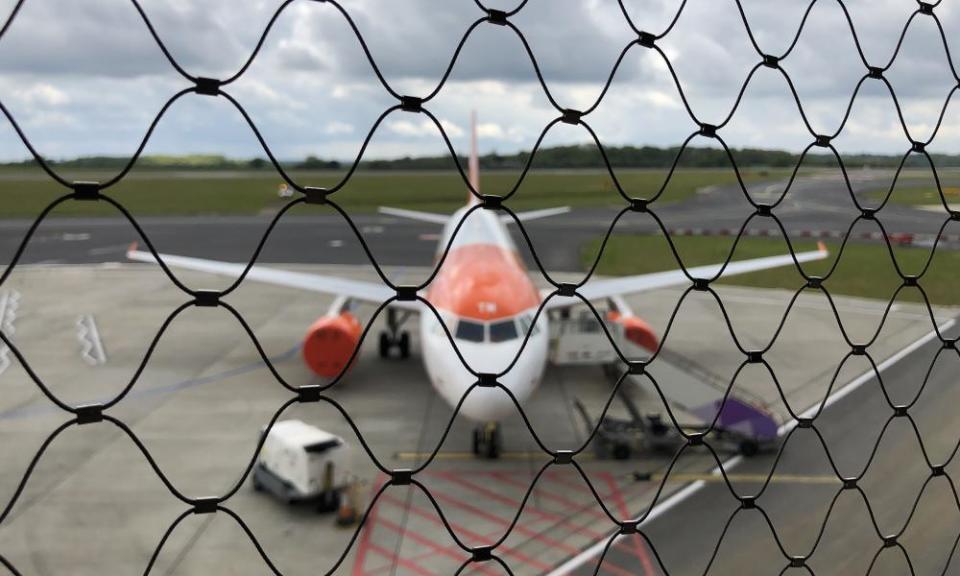Luton council draws up emergency cuts to avoid bankruptcy

Luton borough council is drawing up drastic cuts to services to avoid bankruptcy after after a coronavirus-related collapse in passenger numbers at Luton airport blew an estimated £49m hole in its budget.
The council described the impact of the projected drop in revenue from the airport as a “nightmare scenario”. As the owner of the airport, it was receiving a £20m annual dividend, which has helped it maintain local services despite £130m of funding cuts since 2010.
It has been forced to plan a July emergency budget that will cut £22m, or 16% of its annual spending. “The airport has held back the tide of austerity in Luton, but coronavirus has broken those defences,” said Andy Malcolm, the council’s cabinet member for finance. “We are now going to feel the full force of austerity in council services.”
Local authority leaders called for a long-term stability plan for councils after figures suggested that continuing income losses from coronavirus-related shortfalls in council tax, business rates and commercial investments would run into several billions over the next few months.
Estimates based on the latest monthly government survey of councils’ financial projections suggest that local authorities remain on course for a £9bn-£10bn net shortfall this year, as the extra costs of meeting Covid-19 pressures in areas such as social care and homelessness continue to mount.
But there is growing concern that even if cost pressures start to reduce as the lockdown eases, many councils will face long-term structural deficits as record job losses and a faltering economy reduce income from local taxes, rates and business investments.
Hundreds of thousands of residents have already either defaulted on council tax payments or will seek council tax support after losing their jobs. Business rates income is precarious, and some council investments in local infrastructure affected by Covid restrictions, such as sports stadiums and conference centres, look shaky.
“The government has got to understand that much of that income is not coming back overnight and in some cases, not at all,” said Sir Stephen Houghton, leader of Barnsley borough council and chair of the Special Interest Group of Metropolitan Authorities (Sigoma), a network that includes many of England’s biggest cities.
He added: “The government has got to decide: is it going to provide money to the places that need it or not? There’s a real possibility that some councils could fall over as a result of this. We need assurances that we are not going to have to go through austerity all over again.”
Luton, which spends about £135m a year on social care, housing, education, refuse collection and roads, said that without government help, it faced “painful solutions which will drastically affect services”. The proportion of its income from commercial revenue is the second highest in the country after the City of London.
The growth of the international airport in recent years – it directly provides 13,000 jobs locally – has helped socially deprived Luton grow economically. But just 14,000 passengers passed though the airport in April compared with 1,535,000 over the same period last year, and there is little sign of a quick recovery.
The National Audit Office warned in February – a month before the UK went into lockdown – that an unprecedented spending spree on commercial property, funded by cheap Treasury loans and aimed at offsetting central government cuts, had left many local authorities “potentially badly exposed in the event of an economic recession or a property crash”. The Treasury last week indicated that the loans were no longer available.
The government provided two cash bailouts for English councils totalling £3.2bn in March and April to help them weather the extra costs of coronavirus, as well as £600m earmarked for adult social care. But local authorities say in some councils this money will run out in early June, and a longer-term approach is needed.
A spokesperson for the Ministry for Housing, Communities and Local Government said it was working with councils to understand the costs they are facing. “By providing councils with over £3.2bn in the fairest way possible, we’re working with them to tackle the immediate pressures they have told us they are facing.”

